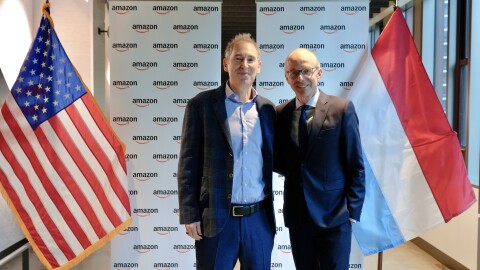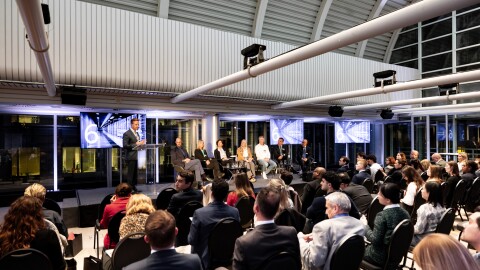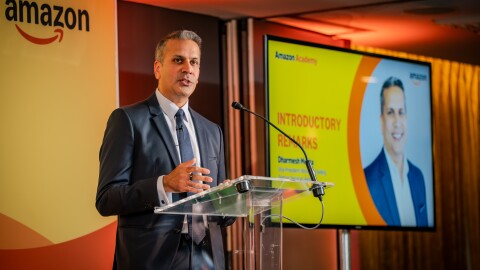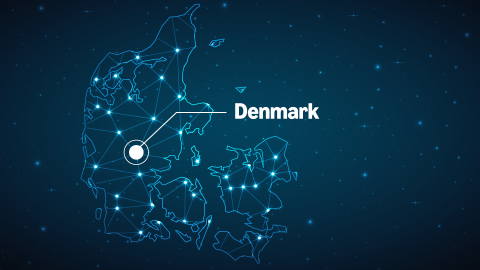I recently participated in a panel at Journée de l'Economie, an annual conference organised by the Luxembourg Chamber of Commerce, where we tackled a question that’s top of mind for me and many others: ‘Is AI really transforming businesses?’ After our lively discussion, I wanted to share some thoughts on what this transformation actually looks like in practice.
In recent years, there has been much discussion about the impact of artificial intelligence (AI) and robotics on the future of work. Here at Amazon, I've witnessed first-hand how these technologies are transforming our operations. Our experience shows that AI and robotics are not replacing jobs, but rather enhancing them, making our workplaces safer and more inclusive and creating new opportunities for our employees.
It may come as a surprise that people who work with AI and robotics are largely positive about the impact of technology on their work lives. A recent study led by the Massachusetts Institute of Technology (MIT)* across nine countries, including France, Germany, Italy, Poland and Spain, found that 60% of workers who have interacted with robotics and AI expect positive impacts on their safety, career development and productivity. The study highlights a crucial point in my opinion: People with more exposure to new technologies tend to have a more positive outlook on them.
I’m proud to say that over the past five years, we have invested more than €700 million in AI and robotics in our European fulfilment centres, deploying over 1,000 robotics systems across the network. Since introducing robots within Amazon’s operations worldwide, we’ve hired hundreds of thousands of employees to work in our facilities and created more than 700 new types of jobs. In our European fulfilment centres alone, more than 50,000 jobs have been enhanced by technological innovations over the past decade.
But it’s not enough to deploy new technologies and create new jobs. It is our responsibility, and the responsibility of all employers, to ensure that employees are comfortable and proficient in using new technologies. Last year we commissioned a study by Ipsos to understand how workers in eight European countries felt about the future of work. That study showed that 89% of people think it’s important to learn a new skill to improve or change their career path, but almost one in five (19%) said they couldn’t afford to pay for training. Our efforts to upskill employees in new technologies align closely with the recommendations in Mario Draghi’s report entitled ‘The future of European competitiveness’, which emphasises giving EU citizens the digital and technical skills needed to benefit from advanced technologies.
We have invested close to €140 million in training programmes in Europe since we launched the Career Choice programme here in 2014. Career Choice provides employees up to €8,000 over four years for nationally recognised courses from more than 85 schools throughout Europe, preparing them for new careers at Amazon or elsewhere. Last year, we added new courses in areas such as Cyber Security, Information Security, Mechatronics, Procurement Logistics and Big Data, Virtualisation and Machine Learning.
This year, we’ll be launching a fellowship programme where postdoctoral researchers from MIT will work directly with our Fulfilment Technology & Robotics teams to identify best practices for scaling automation while continually improving the employee experience.
I believe that the future of work is not a choice between humans and machines. Our vision was never tied to a binary decision of people or technology. Instead, it was about people and technology working safely and harmoniously together to deliver for our customers. That vision remains today., It's a future where technology creates new opportunities for people and helps ensure safer, more productive workplace for all.
*Study commissioned by Amazon









